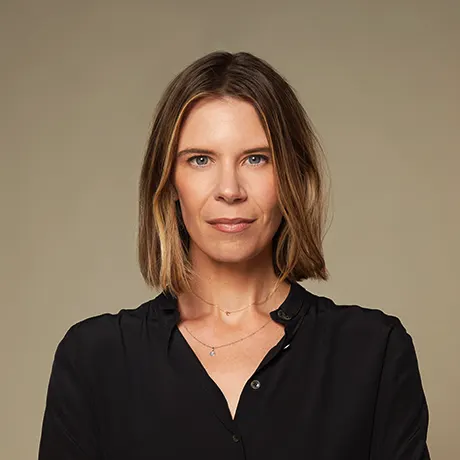Stay in the know
All our latest podcasts delivered right to your inbox.
Back when he was a criminal defense lawyer, Ernest Anemone related to one of his clients: An impulsive, irritable teenage boy who burned down the penalty box of a hockey rink. But what Ernie related to wasn’t just the ADHD behaviors. It was the teen’s feeling of having no control over his own life.
Now, Ernie is an actor, filmmaker, and executive coach for Fortune 500 companies. Growing up, Ernie felt like he had no agency. He knew he didn’t have the type of focus society favored. But he was (and continues to be) good in a crisis. Ernie can focus — one could argue — when it really matters.
Also in this episode, the embarrassment and shame that comes with executive dysfunction. And is ADHD really an attention “deficit”?
Related resources
Episode transcript
Ernest: He was struggling in school. He was struggling at home. He was just struggling in general to have a sense of identity and a sense of place in the world. Feel like he was a subject in the world rather than an object. I remember a lot of that from my childhood too.
Laura: From the Understood Podcast Network, this is "ADHD Aha!," a podcast where people share the moment when it finally clicked that they or someone they know has ADHD. My name is Laura Key. I'm the editorial director here at Understood, and as someone who's had my own ADHD "aha" moment, I'll be your host.
I am here today with Ernest Anemone. Ernie is a former criminal defense attorney and a current actor, filmmaker, and executive coach for Fortune 500 companies. Ernie, you're such a Renaissance man. Let's start with what you do as an executive coach for Fortune 500 companies.
Ernest: Sure. And thank you for having me. My work is primarily centered around helping people have better conversations. So, I work with executives at all levels of leadership in many different industries, and the main goal is to help them create a culture of psychological safety, where there's conversational turn-taking, people feel vulnerable enough and comfortable enough to fail if need be.
Laura: And a former criminal defense attorney. Is there a connection there or just completely disparate experiences?
Ernest: I think that during the time that I was practicing criminal defense, which was nearly a decade, I learned a lot about human behavior and communication. And, I do take a lot of that with me into the room.
Laura: And, correct me if I'm wrong, but in your time as a lawyer, there were some experiences working with education law that sparked your thoughts that you may have ADHD.
Ernest: Yes, but that actually came later. The first thing that gave me an inkling that something might be going on with my mind was probably my first criminal client. It was a 14-year-old boy who had burned down a hockey rink. Well, not the entire rink. I'm giving him too much credit. The penalty box of a public hockey rink.
And, I remember sitting down with him and explaining the charges against him, and then we just started talking about life in general. And a lot of the things that he was describing to me about his impulsive nature, his inability to focus, his irritability, it all started to pull things into focus for me around my own life and growing up and those feelings that I had thinking that it was just depression. And there's an old saying that all advice is autobiographical.
So, what I did for him was I told him a little bit about my story and how I could relate to some of the things that he was saying. And I remember getting a call from his mother the very next day saying that "For the first time, my son has sat down with his sister and helped her with her homework. He has helped clean up around the house, and he just generally seems a little bit happier. I don't know what you said to him, but I'm happy that you said it." And that was probably the moment where I was hooked on doing that as much as possible.
Laura: What was it to this kid's experience that you felt resonated with your own?
Ernest: Primarily, it was the lack of control he felt like he had over his own life. He felt like he lacked agency, although he didn't exactly phrase it that way. He was struggling in school. He was struggling at home. He was just struggling in general to have a sense of identity and a sense of place in the world. Feel like he was a subject in the world rather than an object.
I remember a lot of that from my childhood too. But more so, you know, it was the impulsivity. He felt as if he had to keep moving. He couldn't stop. To stop was to die, you know, but to keep moving was you know, just roll forth into chaos for him.
Laura: Tell me more about the lack of agency and the lack of control, and how specifically you felt similarly in your life.
Ernest: I think that to a large extent, all children and young adults grow up feeling somewhat disrespected, somewhat less than. It's just the nature of the way our system of education is set up. It's the way our society is set up in many ways. And we're on the verge of being told that we have to have more responsibilities and be the caretakers of this world, but also then not be trusted to say or do anything.
And I feel like there's very little thought put into that in-between time to allow young adults the space to reflect about how they like to work, how they like to be in this world. And I think that when you don't have that space for reflection, it can lead to dark places sometimes. And I know it did for me as an adolescent.
Laura: And how would you have preferred to work or preferred to be as an adolescent?
Ernest: I would have preferred to have heard early on that there are different ways of thinking and learning. Just that alone probably would have went a long way for me. When you're young, you have no frame of reference for how your mind works. It just is what it is. You probably don't think about it any more than a fish thinks about the water that it's swimming in.
And then it's only through comparison that you begin to understand that you are a bit different. You're not sure whether it's a good thing or a bad thing, but generally speaking, standing out and being different in this world opens you up to all sorts of attacks.
Laura: Give me an example of tween or teen Ernie in the classroom at school, for instance. And where looking back, you can see now that, oh, your ADHD was really creating some challenges for you and you were misunderstood.
Ernest: For me personally, I would have a hard time letting go of certain issues or certain points. I'm certainly very opinionated and I could not keep those opinions to myself. It was very hard for me to listen to something that I knew what the ending of it was. If I knew the end of the sentence, I knew what the end of this thought. I wanted to move on to the next thing, which I didn't know. And it was like nails on a chalkboard for me to have to sit there and listen to something that was very predictable for me.
Laura: Did it come across as impatience?
Ernest: Yes, I came across — I know for sure — as irritable, arrogant, and I certainly wasn't trying to be either of those things.
Laura: I've experienced that myself. Just this "All right, all right, move on. I know, I know, I know, I know, I know." "But I have never told you this before." I'm like, "I already thought it through. I know what you're going to say, I know you. I've been studying your every word, I get it, can we move on to the next thing" and then...
Ernest: And you know, I'm acting as if this is past tense. But, you know, it's still something that I struggle with. Even in my relationships now, even with my partner. It's hard sometimes when we're trying to make a decision — maybe about something critical or we're trying to work something out — and I just need to skip to the next subject, which I know is the heart of the matter. I know that that's deep down is what we need to be thinking about and what we need to be acting on.
I have to even remember that other people have their own ways of thinking through things, and it's important when you're working with another person to translate what you need and translate what they need into something that both of you can collaborate on.
Laura: You have this experience as a defense attorney. What happened next?
Ernest: Yeah. So, I started my legal career doing eviction defense with legal services, defending terminations of public benefits, defending evictions. And I really did love that work. But at some point, I decided to hang my own shingle because, again, I became very frustrated with the way that things were run, and I needed to prove that I could do it better in some way. So, I hung my own shingle, and then I started taking criminal work from the public defender's office on contract. I also helped defend IEPs. I helped defend disciplinary actions.
Laura: And for those of you listening who don't know what an IEP stands for, it stands for Individualized Education Program. IEPs lay out the special education supports and services students need, and that can include kids with ADHD.
Ernest: These, I would say, are where the early days, or at least earlier days, of ADHD becoming something that mainstream society was more aware of. I was still at the time very much unaware of it. I feel like I got my education in the field. Hearing people's stories, seeing what they went through, seeing the benefits of a well-crafted IEP, and how it really did change lives.
Laura: You were drawn to do this type of work that involved IEPs, and at this point, you were not diagnosed with ADHD?
Ernest: No, no. Nor did I have a desire to be, even then.
Laura: But you felt drawn to it?
Ernest: I did. I felt drawn to the stories, and at first, I didn't know why, but I slowly began to get a sense that I was finding out more and more about myself with each of these stories. I was taught that, you know, you need to succeed in spite of all of the challenges of the world, and that the world is a tough place. Education is hard, and you have to fight for it, and you need to succeed in spite of all of these things.
I started to learn a different way of seeing things, which is, you know, instead of succeeding in spite of all of these things. What if we could succeed because of our circumstances rather than in spite of them? And, I think that forced me to take a kinder view of myself.
Laura: Did that include seeking out an evaluation?
Ernest: Yes, ultimately it did, but very late in the game. Because, even despite all of that, there were, I think, other biases at play around medication. Because I was also raised in a family and in a generation where men especially, do not talk about any mental health challenges that they're having and they don't get prescribed any medication for that.
I was literally told at points that, you know, you don't want any of that to go on your permanent record because you'll never get accepted anywhere. You'll never get hired anywhere. So, I did keep that prejudice for a long time, that bias for a long time. And then, when I finally broke down one day and I saw what medication had to offer, it was really a game changer for me in terms of working through things differently.
Laura: So, you got evaluated. You were diagnosed with ADHD, and it sounds like you had the option of taking ADHD medication, but you resisted for a while. Do I have that right chronologically?
Ernest: Yes. Out of some twisted sense of pride, maybe.
Laura: What happened when you "broke down" and then... or do you just mean that, like you finally gave in and decided you would...
Ernest: Well, you know, it came down to feeling depressed, and whether or not depression was at play, I think is an open question. There was never any definitive answer on that. But I think that depression primarily stemmed from having a lack of focus and a lack of interest in the things that used to interest me. And I was somebody who wanted to get a lot of things done. And I had a sense of what those things were. I just couldn't bring myself to do them.
It was physically painful to try to sit down and do some of the things that I wanted to do, right? Some of the things that I wanted to write, you know, form some of the projects that I wanted to form. I didn't realize until very late in my life that, when it feels like a physical impossibility, that might be time to seek out an evaluation.
Laura: How did it feel, getting evaluated for ADHD?
Ernest: Liberating in a lot of ways, I guess less scary than I thought. I mean, I think I'm fortunate because I have heard stories and I've seen certainly horror stories where people are essentially gaslit into thinking that it's everything but ADHD.
Laura: That does happen. Yeah. It's unfortunate.
Ernest: There are certainly socioeconomic disparities, racial disparities in how people are evaluated and treated. So, I will say that I'm grateful that I was lucky to have a thoughtful and caring provider. And the way that it felt for me was, each question was a great opportunity to reflect, just in general, and recalibrate.
Laura: And talk to me about attention deficits. You have thoughts about this term "attention deficit."
Ernest: So, my partial perspective on the matter is that attention deficit is a bit of a misnomer. It's more of an attention difference, because when it came to giving certain things attention, I could give it attention all day long. I had a different type of attention, is what I've come to understand. And I think that would resonate with a lot of other people. And the reason that I think we have called it attention deficit is because there is one type of attention that our society overwhelmingly favors.
Laura: Which is?
Ernest: Which is rote memorization, which is obtaining technical skills. Having a technical approach. We often don't favor curiosity and imagination and novel ideas. And funny enough, that in my work as an executive coach, a lot of what I do — I find, day in and day out — is helping people unlearn some of that conditioning.
Laura: So, as a society, we value attention to detail and not necessarily in the creative sense. It's attention to being able to manage all of the mundane things of life. When we first chatted, Ernie, you mentioned that the mundane causes anxiety for you. It's not the big stuff. That you're really great in a crisis, you're really great at digging into things that you're really passionate about. But like this whole being attentive to the everyday stuff that we have to, or "have to be attentive to" is painful.
Ernest: Absolutely. I mean, this was, I think, one of the things that scared me most about practicing law. And I didn't realize again until later that I didn't fear the things that most people feared. I feared the things that most people had a relatively easy time with. Simply, you know, keeping track of cases. You know, I was also raised in the generation that was on the cusp of using case management systems and, you know, automated software and such.
So, every attorney has to have some type of tickler system where, you know — to keep up on certain things — because sometimes I had upwards of 50 cases going on at once. And that always frightened me. It always kept me up at night. The idea that, even with a calendar, I couldn't keep track of some of the details that I needed to keep track of.
Laura: Were you worried about showing up late and dealing with paperwork? That kind of thing.
Ernest: I mean, not only was I worried about it, it happened on more than a few occasions. And it was incredibly embarrassing to have the court call you up and say, "Where are you? You were supposed to be here at 9 a.m."
Laura: Yeah. And I think I don't want to skip past that word "embarrassing" too quickly, because a lot of these things people often brush off, like, it's just becomes kind of like a meme whether or not you have ADHD. "That was so ADHD I was so late." When you do have ADHD and you know that you're struggling with these kinds of things — In my experience, I won't speak for you, it goes beyond embarrassing — It leads to shame.
Ernest: It does. We have embarrassing moments, you know, every day, everybody gets embarrassed at some point. But shame, I think, does hit the nail on the head because it makes you second-guess everything about yourself. It took me a long time to learn to love the way that I think. It's part of just loving myself. I see the advantages to it now, and I also know my shortcomings, and I'm not so proud now that I won't seek out help where I need to.
Laura: I'm still thinking about attention deficit and that word "deficit." Yeah, I think the way that you phrase that is really interesting. Like we have a deficit in the things that society wants us to be attentive to, but that doesn't mean that's the most important thing to be attentive to.
Ernest: Let's face it. I mean, we have a profit-driven culture. But, you know, there is value to slowing down sometimes.
Laura: Where do you feel like your attention thrives? You talked about crises. Can you give some examples or where else, like where does Ernie show up? And he's like "I am super attentive. I'm not going to miss a beat. And I am right here and I'm on it."
Ernest: I think I found the integration that I needed in my life through coaching. I recognize now that the happiest times of my practice working as an attorney was not sitting in writing briefs, but it was working with people. It was sitting across the table from other people, and I started to find value in my way of thinking about things, because other people weren't thinking that way, and they would tell me, "Oh, that's the first time that I thought about it that way."
I would often have a perspective for them that would help them take a step back and look at things differently. And I saw that that was something that I could provide, and I was hell-bent on public service. And you've got to go where your skills meet the world's needs. And that's why I enjoy what I'm doing now.
Laura: Do you find that a lot of your clients are neurodivergent? I imagine you work with a lot of folks in the C-suite just top of your head. You feel like you're more often trying to help senior-level folks, senior leaders understand other people's neurodivergent ways of thinking? Or is it that they themselves are neurodivergent and you're trying to help them relate more with other folks?
Ernest: Honestly, it's a good mix of both. What I think you find when you start working with more senior leaders is there are a lot of — what probably would have been described as — dilettantes. You know, that was a word that I was afraid of being labeled my whole life. But some of the most successful people in the world were themselves dilettantes in other people's eyes. They had many different interests.
Laura: And describe what you mean by that, when you say dilettante.
Ernest: You know, it's that idea that somebody is just steeped enough in a bunch of different things to know enough to get themselves in trouble, but never really understands anything deeply.
Laura: Know just enough to be dangerous? Yes.
Ernest: No, just enough to be dangerous. Whereas the word polymath is admirable. But, you know, the distinction between a polymath and a dilettante is certainly debatable.
Laura: Define polymath for the listeners as well. And maybe for me, I'm just saying.
Ernest: A polymath would be somebody, I guess, who is a master of all trades. Maybe not all, but multiple professions, many. Can speak maybe different languages. Skilled in mathematics, but also chemistry, and also the humanities. I think some of the people that we tend to admire are polymaths, but they may have been accused at some point in their lives of being dilettantes, which carries a negative connotation.
I mean, I was told, you know, at a few points in my life that "I need to get serious." "You need to get serious and stick with something." You know, "Leaving the law is a mistake because, you know, you've already had so many years of experience and built up credibility. Why would you leave all of that?" And, my answer is because life is for living.
You know, there is no — as Alan Watts would say — serious destination that we're trying to get to. It's a musical thing. You know, the point is to enjoy yourself and dance and sing along to the music. And as soon as something doesn't please me anymore, why would I stick with it just out of some rote sense of obligation?
Laura: What did you say earlier, when you were talking about your experience with the young person who set fire to the penalty box? All advice is biographical?
Ernest: Yeah, all advice is autobiographical.
Laura: That coming up a lot in your work as a coach?
Ernest: Well, I mean, that is my one and only caveat for any advice that I give, before I give or attempt to give any type of advice to somebody. Because I don't trade in advice. I don't believe that wisdom is something that can be communicated. Wisdom is something that we experience individually. So, whatever wisdom I've gained from living my life, that doesn't transfer to another person.
So, whenever I give any type of advice, I give it with the caveat that all advice is autobiographical, meaning that, this is how I experienced it. This was how I saw it through my eyes. And to the extent that that helps you, great. And if it doesn't, ignore it and move on.
Laura: So, what's the most common piece of advice that you give to help corporate leaders understand the importance of neurodiversity, or just to understand neurodiversity in general?
Ernest: I have a bit of an odd answer, I guess. Or at least this is what the first thing that comes to mind is getting over their own shame and guilt. I find that the number one problem in most organizations, corporations, government organizations, non-profits, just community groups is people have a difficult time talking to each other in any genuine sense. We have discussions and we know how to discuss things, but we often don't know how to have a dialogue.
And the difference between those two things is a discussion. You know, it has its root in percussion, the same root as percussion. It's like I beat my drum. You beat yours. I say my thing, you say yours. That's a discussion. But a dialog is where we bring two different reflections or ideas about the world, about ourselves to the table. And both of us walk away with a new third thing. You know, it's transformative. It's not just about me saying my thing and you saying yours.
Laura: Ernie, I don't know if you can hear me taking notes occasionally on my laptop. I'm not even doing it for the sake of the interview. It's totally selfish. I'm writing down these gems that you're providing as if you were my own coach right now.
Ernest: Well, I appreciate that. And again, to the extent that anything I say helps you, good. But if not, just ignore it and move on.
Laura: The ultimate caveat. So, are you a dilettante or are you a polymath?
Ernest: I am what you say I am, right? So, I would say that I aspire to be a polymath, and I probably am always questioning myself as to whether or not I'm just being a dilettante, to keep myself honest.
Laura: So, when you went in to get evaluated and you came out the other side and you had been diagnosed with ADHD, what was the overall outcome for your well-being?
Ernest: It gave me, once again, a language for telling a different story. And I think, I mean, I don't want to wax poetic here, but then again, it is one of my favorite things to do.
Laura: I mean, this is your time, Ernie, go for it.
Ernest: I hope this all gets edited into something flattering, rather...
Laura: Justin is incredible. And leave that in, Justin. Don't cut out the fact that I said you're incredible. Thank you.
Ernest: So, you know, our brains are giant metaphor machines. I hesitate using the machine metaphor to describe our brain, but for the sake of argument. Our brains run on metaphor. The only reason that I can distinguish the table that I'm sitting at from anything around it is because I could see things around that are not a table. So, it's this constant "this and that." I understand this because I understand that.
And that's the transformative power of stories. They help us step outside of our own mind and see things from a different perspective. We often get so caught up in the story that we're telling ourselves that we can't see things any differently. Going back to the fish, not thinking about the water that it's swimming in. You know, if you ask a fish "How's the water," he may be like, "What's water?"
I think that's what happens with our own self-narratives. Every morning we get up and we tell ourselves the story that we're the same person who went to bed the night before. So, I told you I was going to wax poetic, but I'll end it there.
Laura: I love it.
Ernest: So, you know, that story is very powerful. For better and for worse, as we all know. So, a lot of the shame and the guilt that comes from having ADHD or trying to seek a diagnosis or an evaluation comes from this story of whether that's a good thing or it's a bad thing to have ADHD. And really, I mean, it's neither. Oscar Wilde famously said that "There's no such thing as a good story or a bad story. There's well-written stories and poorly written stories."
So, you asked, like, what did getting a diagnosis do for me? It helped me realize that I was thinking in terms of good or bad. But really, I just needed to start writing my own story better. And that story is going to include the same challenges that it did before the diagnosis. But now I get to tell it in a different way. I get to say how that story ends.
Laura: Ernie, thank you for chatting with me today. I can't think of a better place to end than right there. That was beautiful.
Ernest: Thank you.
Laura: I really appreciate your time.
Ernest: It was a pleasure being here. You learn something new about yourself every time somebody gives you an opportunity to say something about yourself. Which is why my future efforts are being focused on my nonprofit, "Project My Voice."
Laura: Do it.
Ernest: We are just getting started, but a lot of the work that I have done in Fortune 500 companies, I think is better suited for the community. So, I want to work with students. I want to work with teachers. I want to work with parents. I want to work with community members, and I want to give them that space to reflect on their own lives and tell better stories to each other and also about themselves. And I want to do that through film, which is another love of mine.
Because talking about stories and the transformative power of stories, film gives us this wonderful shared experience, and we often waste it when we all get up and walk out of the theater, just strangers. So, the idea behind Project My Voice is, let's watch a movie together, and instead of walking out of the theater, strangers, let's walk out of the theater knowing each other a little bit better, and having learned something more about each other and something about ourselves.
Laura: So, cool. That sounds great. Congratulations. I'm excited to see all the wonderful things that you do.
Ernest: Well, thank you very much.
Laura: Nothing mundane ever.
Ernest: Can't. It's a physical impossibility.
Laura: You've been listening to "ADHD Aha!" from the Understood Podcast Network. If you want to share your own "aha" moment, email us at ADHDAha@understood.org. I'd love to hear from you. If you want to learn more about the topics we covered today, check out the show notes for this episode. We include more resources as well as links to anything we mentioned in the episode. Understood is a nonprofit organization dedicated to helping people who learn and think differently, discover their potential and thrive. We have no affiliation with pharmaceutical companies. Learn more at understood.org/mission. "ADHD Aha!" is produced by Jessamine Molli. Say hi, Jessamine!
Jessamine: Hi, everyone.
Laura: Briana Berry is our production director. Our theme music was written by Justin D. Wright, who also mixes the show. For the Understood Podcast Network, Scott Cocchiere is our creative director, Seth Melnick is our executive producer, and I'm your host, Laura Key. Thanks so much for listening.
Host
Latest episodes
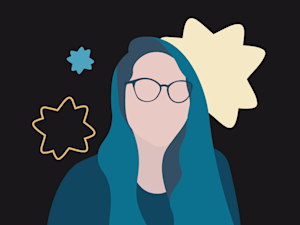
April 16, 2024
ADHD coach Jaye Lin was a gifted kid with undiagnosed ADHD. Now, she’s building communities and helping others cope with ADHD burnout.

April 2, 2024
Writer Paulette Perhach had money coming in but struggled to keep it in her bank account. An ADHD diagnosis brought her struggles into perspective.
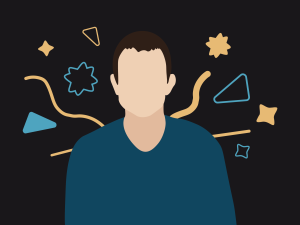
March 19, 2024
Eye to Eye founder David Flink is fighting the “just try harder” myth surrounding ADHD, dyslexia, and other learning and thinking differences.
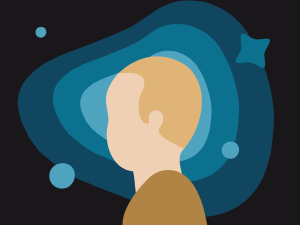
March 5, 2024
Peter Jones used to feel better saying he had a hearing problem rather than considering ADHD. Now, he knows he has ADHD and isn't afraid to say it.

February 20, 2024
Before her ADHD diagnosis, ADHD coach Emily Weinberg thought she was just lazy. But in reality she was stuck in “analysis paralysis.”
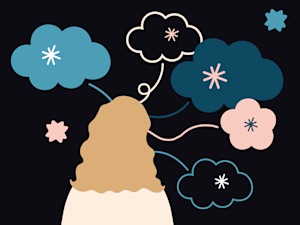
Carol Blumenstein was called an unteachable student. Now, she knows she has ADHD and dyslexia, and supports her five kids who learn differently, too.
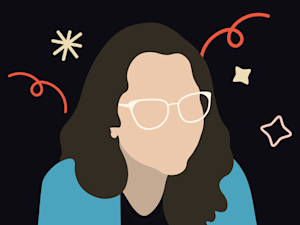
January 9, 2024
ADHD and post-traumatic stress disorder (PTSD) symptoms can look similar. And they can morph into what Hannah calls “a trauma ball of blame.”
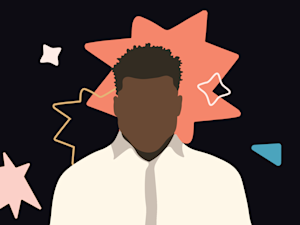
December 26, 2023
Livingston Steele was diagnosed with ADHD about a year into working at Understood.org. His experience and work have given him immense empathy for people with ADHD.
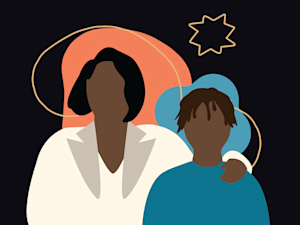
December 12, 2023
Wendy Zanders is a decluttering coach with ADHD. Find out how she got into organizing, and get a few tips for yourself.

